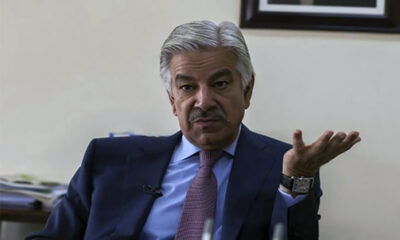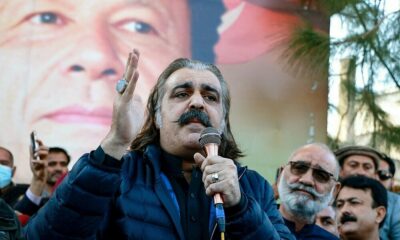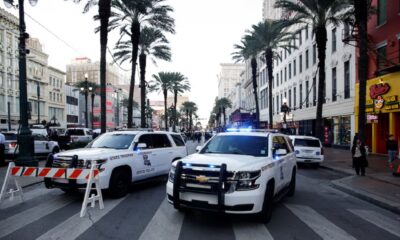World
North Korea says it launched ICBM to warn US, South Korea over drills
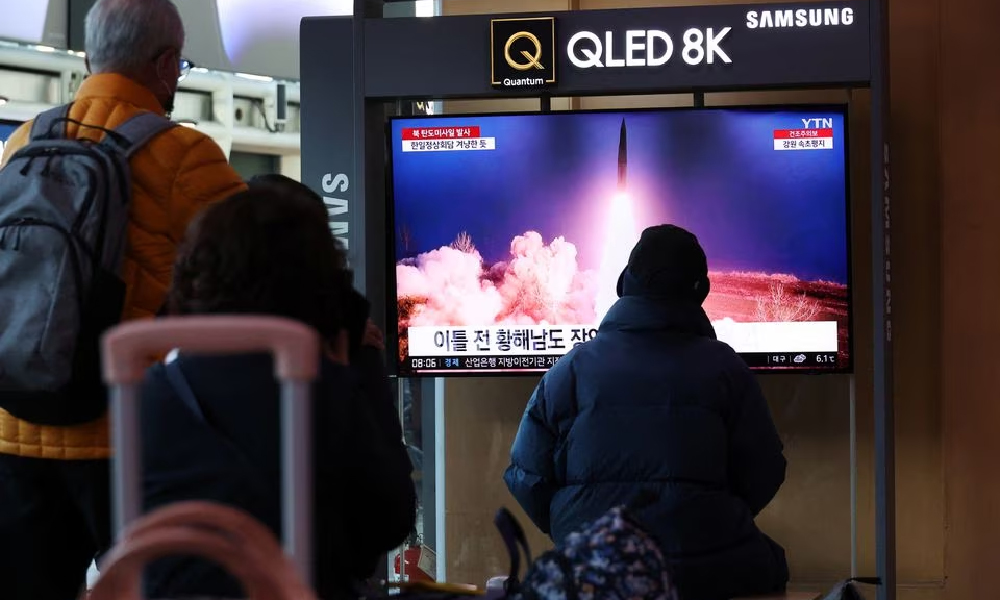
North Korea said that Thursday's launch was its largest Hwasong-17 intercontinental ballistic missile (ICBM), fired during a drill to demonstrate a "tough response posture" to ongoing U.S.-South Korea military drills, state media reported.
Photos released on Friday by the country's government media showed Kim Jong Un watching the launch with his daughter, and included pictures from space apparently shot by a camera mounted on the missile, Reuters reported.
North Korea fired the ICBM into the sea between the Korean peninsula and Japan on Thursday, hours before South Korea's president flew to Tokyo for a summit that discussed ways to counter the nuclear-armed North.
"The launching drill of the strategic weapon serves as an occasion to give a stronger warning to the enemies intentionally escalating the tension in the Korean peninsula while persistently resorting to irresponsible and reckless military threats," state news agency KCNA said.
The North's ballistic missiles are banned under United Nations Security Council resolutions and the launch drew condemnation from governments in Seoul, Washington and Tokyo.
South Korean and American forces began 11 days of joint drills, dubbed "Freedom Shield 23," on Monday, held on a scale not seen since 2017 to counter the North's growing threats, read the report.
Kim accused the United States and South Korea of increasing tensions with the military drills.
He "stressed the need to strike fear into the enemies, really deter war and reliably guarantee the peaceful life of our people and their struggle for socialist construction by irreversibly bolstering up the nuclear war deterrent," KCNA reported.
China, which has a defense pact with North Korea, also blamed the United States for the current tensions, saying they are caused by Washington's efforts to increase pressure on Pyongyang.
The Hwasong-17 is North Korea's biggest missile yet, and is the largest road-mobile, liquid-fuelled ICBM in the world.
It is believed to have the range to potentially deliver a nuclear warhead to targets anywhere in the United States, Reuters reported.
The missile was launched from Pyongyang's airport, and KCNA said it traveled up to a maximum altitude of 6,045 km (3,756 mi) and flew a distance of 1,000 km (621 mi) for just over 69 minutes, before falling into the open sea. The launch did not pose a safety threat to any neighbouring countries, the report said.
World
US vet formerly deployed in Afghanistan rams truck into New Orleans crowd, killing 15

A U.S. Army veteran flying an ISIS flag from his truck swerved around makeshift barriers and plowed into New Orleans' crowded French Quarter on New Year's Day, killing 15 people in an attack officials said may have been carried out with the help of others.
The suspect, identified as Shamsud-Din Jabbar, 42, a U.S. citizen from Texas who once served in Afghanistan, was killed in a shootout with police after ramming the crowd, Reuters reported.
The attack injured about 30 other people, including two police officers wounded by gunfire from the suspect. It took place around 3:15 a.m. (0915 GMT) near the intersection of Canal and Bourbon Streets, an historic tourist destination known for its music and bars where crowds were celebrating the New Year.
Police and political leaders vowed to capture any accomplices.
Police found weapons and a potential explosive device in the vehicle, while two potential explosive devices were found in the French Quarter and rendered safe, the FBI said.
With the perceived danger ongoing, officials postponed the Sugar Bowl, a classic college football game played in New Orleans each year on New Year's Day. The game between Notre Dame and Georgia was put off until Thursday afternoon as police swept parts of the city looking for possible explosive devices and converged on neighborhoods in search of clues.
The city will also host the NFL Super Bowl on Feb. 9.
An ISIS flag was attached to a staff protruding from the trailer hitch of the rented vehicle, prompting an investigation into possible links to terrorist organizations, the Federal Bureau of Investigation said.
"We do not believe that Jabbar was solely responsible. We are aggressively running down every lead, including those of his known associates," FBI Assistant Special Agent in Charge Alethea Duncan told reporters, adding that investigators were looking into a "range of suspects."
The victims included the mother of a 4-year-old who had just moved into a new apartment after getting a promotion at work, a New York financial employee and accomplished student athlete who was visiting home for the holidays, and an 18-year-old aspiring nurse from Mississippi.
BIDEN CONDEMNS ATTACK
U.S. President Joe Biden condemned what he called a "despicable" act and said investigators were looking into whether there might be a link to a Tesla truck fire outside a Trump hotel in Las Vegas. So far, there was no evidence linking the two events, Biden said.
"The FBI also reported to me that mere hours before the attack, he posted videos on social media indicating that he's inspired by ISIS, expressing the desire to kill," Biden said of the New Orleans suspect.
CNN, citing officials briefed on the investigation, said the suspect recorded videos in which he mentioned dreams about joining ISIS and contemplated killing his family after a divorce.
ISIS - also called Islamic State or ISIL - is a Muslim militant group that once imposed a reign of terror over millions of people in Iraq and Syria until it collapsed following a sustained military campaign by a U.S.-led coalition.
Even as it has been weakened in the field, ISIS has continued to recruit sympathizers online, experts say.
Public records showed Jabbar worked in real estate in Houston. In a promotional video posted four years ago, Jabbar described himself as born and reared in Beaumont, a city about 80 miles (130 km) east of Houston, and said he spent 10 years in the U.S. military as a human resources and IT specialist.
Jabbar was in the regular Army from March 2007 until January 2015 and then in the Army Reserve from January 2015 until July 2020, an Army spokesperson said. He deployed to Afghanistan from February 2009 to January 2010 and held the rank of staff sergeant at the end of service.
'SCREAMING AND DEBRIS'
Mike and Kimberly Strickland of Mobile, Alabama, said they were in New Orleans for a bluegrass concert and heading back to their hotel just 20 yards (meters) from where the truck hit some pedestrians.
"There were people everywhere," Kimberly Strickland said in an interview. "You just heard this squeal and the rev of the engine and this huge loud impact and then the people screaming and debris - just metal - the sound of crunching metal and bodies."
About 400 officers were on duty in the French Quarter at the time of the incident, including a number who had established a makeshift barrier to prevent anyone from driving into the pedestrian zone, police said.
In response to vehicle attacks on pedestrian malls around the world, New Orleans was in the process of removing and replacing the steel barriers known as bollards that restrict vehicle traffic in the Bourbon Street area.
Construction was due to be completed in time for the Super Bowl. As a temporary measure, police vehicles and officers attempted to provide a barrier, Kirkpatrick said.
"We did indeed have a plan, but the terrorist defeated it," Kirkpatrick said.
World
US announces $5.9 billion in military and budget aid to Ukraine
Washington has separately provided approximately $61.4 billion in security assistance to Kyiv since the start of the war, according to the Pentagon.
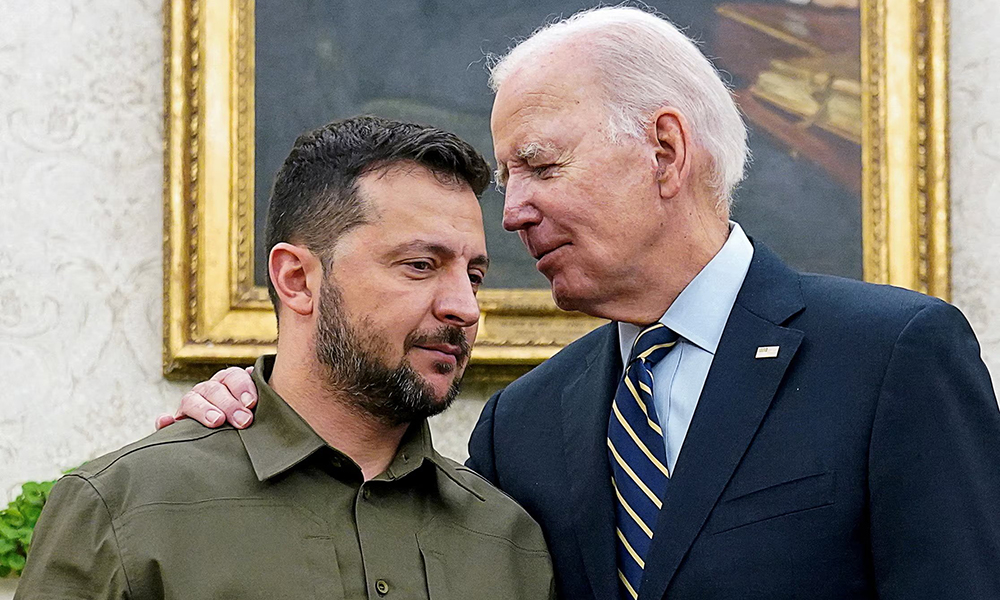
The United States on Monday announced nearly $6 billion in additional military and budget assistance for Ukraine as President Joe Biden uses his final weeks in office to surge aid to Kyiv before President-elect Donald Trump takes power, Reuters reported.
Biden announced $2.5 billion in additional security assistance for Ukraine.
Treasury Secretary Janet Yellen said the United States has made available $3.4 billion in additional budget aid to Ukraine, giving the war-torn country critical resources amid intensifying Russian attacks on Ukrainian civilians and infrastructure.
"At my direction, the United States will continue to work relentlessly to strengthen Ukraine’s position in this war over the remainder of my time in office," Biden said in a statement.
Biden's announcement includes $1.25 billion in military aid drawn from U.S. stockpiles and a $1.22 billion Ukraine Security Assistance Initiative (USAI) package, the final USAI package of Biden's time in office.
Under USAI, military equipment is procured from the defense industry or partners, rather than drawn from American stocks, meaning it can take months or years to arrive on the battlefield.
Yellen said in a statement the direct budget assistance, provided in coordination with the U.S. Agency for International Development and the State Department, marked the final disbursement under the 2024 Ukraine Security Supplemental Appropriations Act, read the report.
The U.S. Congress has approved $175 billion in total assistance for Ukraine since Russia's invasion of Ukraine nearly three years ago, according to the nonpartisan Committee for a Responsible Federal Budget. Recently the Russians have been using North Korean troops to bolster their fighting position.
North Korean forces are experiencing mass casualties on the front lines of Russia's war against Ukraine, with 1,000 of their troops killed or wounded in the last week alone in Russia's Kursk region, White House spokesperson John Kirby said on Friday.
Biden said the new assistance will provide Ukraine with "an immediate influx of capabilities that it continues to use to great effect on the battlefield and longer-term supplies of air defense, artillery, and other critical weapons systems."
Nearly three years into the war, Washington has committed billions of dollars in aid for Ukraine, but it is uncertain if the aid will continue at that pace under Trump, who succeeds Biden on Jan. 20.
Trump has said he wants to bring the war to a swift end.
During the presidential campaign, Trump questioned the level of U.S. involvement in the conflict, suggesting European allies should bear more of the financial burden, Reuters reported.
Some of his fellow Republicans - who will control both the House of Representatives and Senate starting next month - have also cooled on sending more aid to Kyiv.
A U.S. official said the $3.4 billion in budget funding brings the total in U.S. budget aid to Ukraine to just over $30 billion since Russia's invasion in February 2022. Most of those funds are used to keep Ukraine's government running by paying salaries to teachers and other state employees.
Washington has separately provided approximately $61.4 billion in security assistance to Kyiv since the start of the war, according to the Pentagon.
Biden said the Defense Department is in the process of delivering hundreds of thousands of artillery rounds, thousands of rockets, and hundreds of armored vehicles "which will strengthen Ukraine’s hand as it heads into the winter."
Yellen said continued economic aid for Ukraine was crucial to allow it to maintain government services and continue to defend its sovereignty, warning against moves to cut funding.
"Ukraine’s success is in America’s core national interest," she said, vowing to continue to pressure Moscow with sanctions and to help position Ukraine to achieve a just peace.
"We must not retreat in this effort."
World
Jimmy Carter, former US president and Nobel Peace Prize recipient, dead at 100
Carter won the Nobel Peace Prize in 2002 for his efforts to promote human rights and resolve conflicts around the world, from Ethiopia and Eritrea to Bosnia and Haiti.
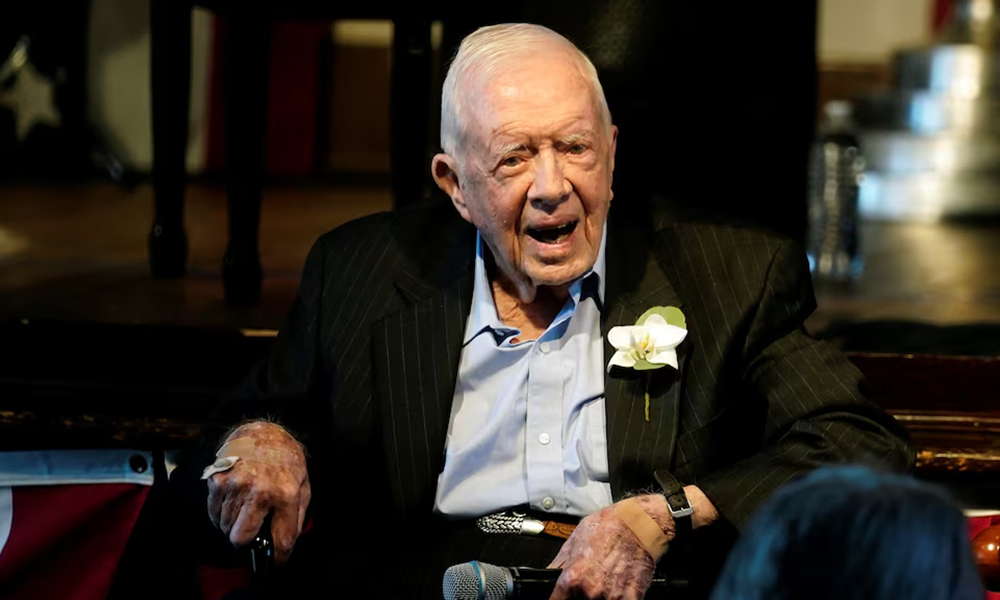
Jimmy Carter, the earnest Georgia peanut farmer who as U.S. president struggled with a bad economy and the Iran hostage crisis but brokered peace between Israel and Egypt and later received the Nobel Peace Prize for his humanitarian work, died at his home in Plains, Georgia, on Sunday. He was 100, Reuters reported.
Carter, a Democrat, became president in January 1977 after defeating incumbent Republican President Gerald Ford in the 1976 election. His one-term presidency was marked by the highs of the 1978 Camp David accords between Israel and Egypt, bringing some stability to the Middle East.
But it was also dogged by an economic recession, persistent unpopularity and the Iran hostage crisis that consumed his final 444 days in office. Carter ran for re-election in 1980 but was swept from office in a landslide as voters embraced Republican challenger Ronald Reagan, the former actor and California governor.
Carter lived longer than any U.S. president and, after leaving the White House, earned a reputation as a committed humanitarian. He was widely seen as a better former president than he was a president - a status he readily acknowledged, read the report.
World leaders and former U.S. presidents paid tribute to a man they praised as compassionate, humble and committed to peace in the Middle East.
"His significant role in achieving the peace agreement between Egypt and Israel will remain etched in the annals of history," said Egyptian President Abdel Fattah al-Sisi in a post on X.
The Carter Center said there will be public observances in Atlanta and Washington. These events will be followed by a private interment in Plains, it said.
Final arrangements for the former president's state funeral are still pending, according to the center.
In recent years, Carter had experienced several health issues including melanoma that spread to his liver and brain. Carter decided to receive hospice care in February 2023 instead of undergoing additional medical intervention. His wife, Rosalynn Carter, died on Nov. 19, 2023, at age 96. He looked frail when he attended her memorial service and funeral in a wheelchair.
Carter left office profoundly unpopular but worked energetically for decades on humanitarian causes. He was awarded the Nobel Peace Prize in 2002 in recognition of his "untiring effort to find peaceful solutions to international conflicts, to advance democracy and human rights, and to promote economic and social development."
Carter had been a centrist as governor of Georgia with populist tendencies when he moved into the White House as the 39th U.S. president. He was a Washington outsider at a time when America was still reeling from the Watergate scandal that led Republican Richard Nixon to resign as president in 1974 and elevated Ford from vice president.
"I'm Jimmy Carter and I'm running for president. I will never lie to you," Carter promised with an ear-to-ear smile.
Asked to assess his presidency, Carter said in a 1991 documentary: "The biggest failure we had was a political failure. I never was able to convince the American people that I was a forceful and strong leader."
Despite his difficulties in office, Carter had few rivals for accomplishments as a former president. He gained global acclaim as a tireless human rights advocate, a voice for the disenfranchised and a leader in the fight against hunger and poverty, winning the respect that eluded him in the White House.
Carter won the Nobel Peace Prize in 2002 for his efforts to promote human rights and resolve conflicts around the world, from Ethiopia and Eritrea to Bosnia and Haiti. His Carter Center in Atlanta sent international election-monitoring delegations to polls around the world.
A Southern Baptist Sunday school teacher since his teens, Carter brought a strong sense of morality to the presidency, speaking openly about his religious faith. He also sought to take some pomp out of an increasingly imperial presidency - walking, rather than riding in a limousine, in his 1977 inauguration parade.
The Middle East was the focus of Carter's foreign policy. The 1979 Egypt-Israel peace treaty, based on the 1978 Camp David accords, ended a state of war between the two neighbors, Reuters reported.
Carter brought Egyptian President Anwar Sadat and Israeli Prime Minister Menachem Begin to the Camp David presidential retreat in Maryland for talks. Later, as the accords seemed to be unraveling, Carter saved the day by flying to Cairo and Jerusalem for personal shuttle diplomacy.
The treaty provided for Israeli withdrawal from Egypt's Sinai Peninsula and establishment of diplomatic relations. Begin and Sadat each won a Nobel Peace Prize in 1978.
By the 1980 election, the overriding issues were double-digit inflation, interest rates that exceeded 20% and soaring gas prices, as well as the Iran hostage crisis that brought humiliation to America. These issues marred Carter's presidency and undermined his chances of winning a second term.
On Nov. 4, 1979, revolutionaries devoted to Iran's Ayatollah Ruhollah Khomeini had stormed the U.S. Embassy in Tehran, seized the Americans present and demanded the return of the ousted shah Mohammad Reza Pahlavi, who was backed by the United States and was being treated in a U.S. hospital.
The American public initially rallied behind Carter. But his support faded in April 1980 when a commando raid failed to rescue the hostages, with eight U.S. soldiers killed in an aircraft accident in the Iranian desert.
Carter's final ignominy was that Iran held the 52 hostages until minutes after Reagan took his oath of office on Jan. 20, 1981, to replace Carter, then released the planes carrying them to freedom.
In another crisis, Carter protested the former Soviet Union's 1979 invasion of Afghanistan by boycotting the 1980 Olympics in Moscow. He also asked the U.S. Senate to defer consideration of a major nuclear arms accord with Moscow.
Unswayed, the Soviets remained in Afghanistan for a decade.
Carter won narrow Senate approval in 1978 of a treaty to transfer the Panama Canal to the control of Panama despite critics who argued the waterway was vital to American security. He also completed negotiations on full U.S. ties with China.
Carter created two new U.S. Cabinet departments - education and energy. Amid high gas prices, he said America's "energy crisis" was "the moral equivalent of war" and urged the country to embrace conservation. "Ours is the most wasteful nation on earth," he told Americans in 1977.
In 1979, Carter delivered what became known as his "malaise" speech to the nation, although he never used that word.
"After listening to the American people I have been reminded again that all the legislation in the world can't fix what's wrong with America," he said in his televised address.
"The threat is nearly invisible in ordinary ways. It is a crisis of confidence. It is a crisis that strikes at the very heart and soul and spirit of our national will. The erosion of our confidence in the future is threatening to destroy the social and the political fabric of America."
As president, the strait-laced Carter was embarrassed by the behavior of his hard-drinking younger brother, Billy Carter, who had boasted: "I got a red neck, white socks, and Blue Ribbon beer."
Jimmy Carter withstood a challenge from Massachusetts Senator Edward Kennedy for the 1980 Democratic presidential nomination but was politically diminished heading into his general election battle against a vigorous Republican adversary.
Reagan, the conservative who projected an image of strength, kept Carter off balance during their debates before the November 1980 election.
Reagan dismissively told Carter, "There you go again," when the Republican challenger felt the president had misrepresented Reagan's views during one debate.
Carter lost the 1980 election to Reagan, who won 44 of the 50 states and amassed an Electoral College landslide.
James Earl Carter Jr. was born on Oct. 1, 1924, in Plains, Georgia, one of four children of a farmer and shopkeeper. He graduated from the U.S. Naval Academy in 1946, served in the nuclear submarine program and left to manage the family peanut farming business.
He married his wife, Rosalynn, in 1946, a union he called "the most important thing in my life." They had three sons and a daughter.
Carter became a millionaire, a Georgia state legislator and Georgia's governor from 1971 to 1975. He mounted an underdog bid for the 1976 Democratic presidential nomination, and out-hustled his rivals for the right to face Ford in the general election, Reuters reported.
With Walter Mondale as his vice presidential running mate, Carter was given a boost by a major Ford gaffe during one of their debates. Ford said that "there is no Soviet domination of Eastern Europe and there never will be under a Ford administration," despite decades of just such domination.
Carter edged Ford in the election, even though Ford actually won more states - 27 to Carter's 23.
Not all of Carter's post-presidential work was appreciated. Former President George W. Bush and his father, former President George H.W. Bush, both Republicans, were said to have been displeased by Carter's freelance diplomacy in Iraq and elsewhere.
In 2004, Carter called the Iraq war launched in 2003 by the younger Bush one of the most "gross and damaging mistakes our nation ever made." He called George W. Bush's administration "the worst in history" and said Vice President Dick Cheney was "a disaster for our country."
In 2019, Carter questioned Republican Donald Trump's legitimacy as president, saying "he was put into office because the Russians interfered on his behalf." Trump responded by calling Carter "a terrible president."
Carter also made trips to communist North Korea. A 1994 visit defused a nuclear crisis, as President Kim Il Sung agreed to freeze his nuclear program in exchange for resumed dialogue with the United States. That led to a deal in which North Korea, in return for aid, promised not to restart its nuclear reactor or reprocess the plant's spent fuel.
But Carter irked Democratic President Bill Clinton's administration by announcing the deal with North Korea's leader without first checking with Washington.
In 2010, Carter won the release of an American sentenced to eight years hard labor for illegally entering North Korea.
Carter wrote more than two dozen books, ranging from a presidential memoir to a children's book and poetry, as well as works about religious faith and diplomacy. His book "Faith: A Journey for All," was published in 2018.
-
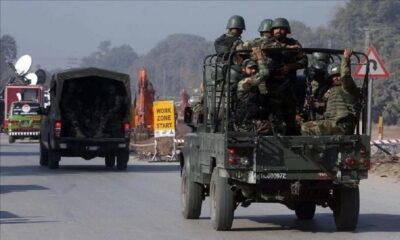
 Latest News4 days ago
Latest News4 days agoPakistani media confirm death of one soldier, wounding of 11 others in firing by Afghan forces
-
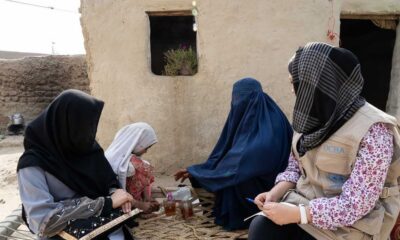
 Latest News4 days ago
Latest News4 days agoIEA warns of suspension for NGOs failing to stop women from working
-
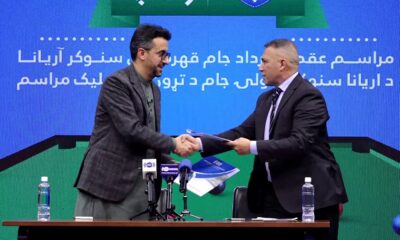
 Latest News3 days ago
Latest News3 days agoAriana Television to produce and broadcast Ariana Snooker Championship in February
-
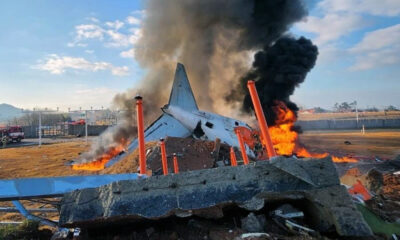
 World4 days ago
World4 days agoFiery plane crash kills 179 in worst airline disaster in South Korea
-
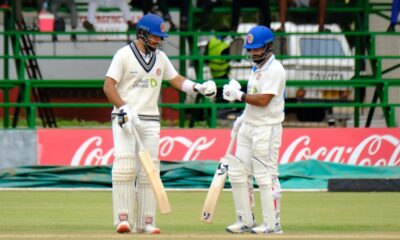
 Sport3 days ago
Sport3 days agoRecord day for Afghanistan but test ends in a draw
-
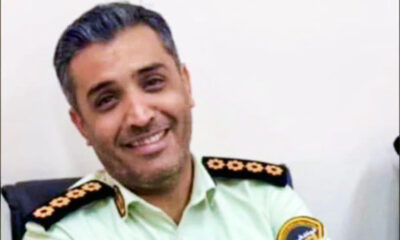
 Regional4 days ago
Regional4 days agoSuicide bomber kills police commander in southern Iran – media reports
-
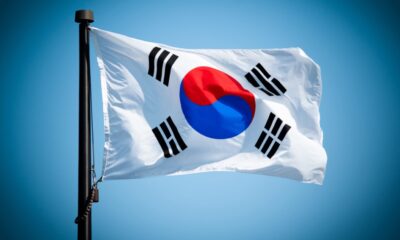
 Latest News2 days ago
Latest News2 days agoSouth Korea pledges $5 million to support vulnerable families in Afghanistan
-
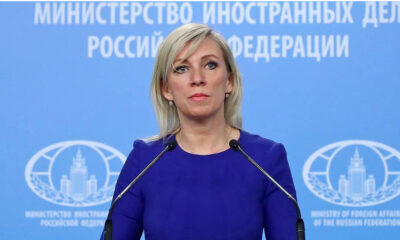
 Latest News4 days ago
Latest News4 days agoRussia reacts to Afghanistan-Pakistan border clashes






